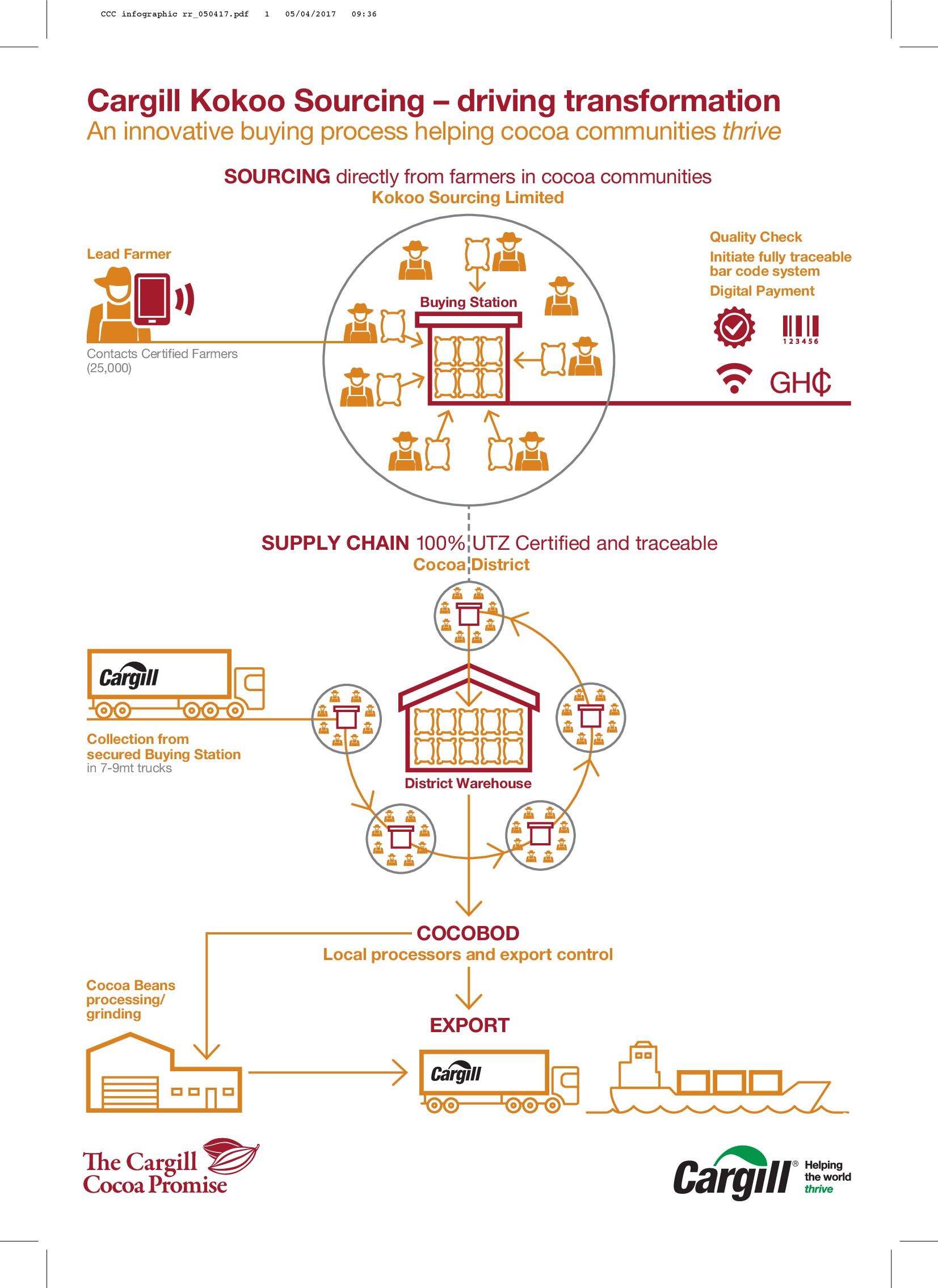The cocoa ingredients supplier set up Cargill Kokoo Sourcing Ltd in November last year after it applied for a license from the Ghanaian Cocoa Board (Cocobod). the company was officially inaugurated last week.
Prior to the new LBC, Cargill purchased beans from another LBC, called Akuafo Adamfo, and the Cocoa Marketing Company on behalf of Cocobod.
Cargill had to pay these third parties, which then went on to pay the cocoa farmers through cash transactions, managing director of West Africa at the company, Lionel Soulard, said.
New digital payment system
Cargill has also incorporated a digital payment system to its new LBC, which is built to increase cocoa traceability.
Through the initiative, farmers will deliver cocoa to community warehouses where beans are digitally weighed in front of them and assigned a traceable bar code. Details of the beans are recorded in a standardized management system, then the beans are collected by large trucks and transported to central warehouses.
Once the beans have been weighed, the farmers are paid using E-Money, which goes straight to their smartphones or E-Wallets through E-Zwich, MTN Mobile Money, and Tigo Mobile Money.
Soulard told ConfectioneryNews the penetration of smartphones within the Ghanaian population and the cocoa farming community is “extremely high”.
“We haven’t experienced any difficulties for farmers [in terms of smartphone availability], with 90% of farmers being paid via E-Zwich and over 9% via MTN Mobile Money, or Tigo Mobil Money,” he said.
More sustainable farms
Cargill's LBC is now fully operational and it has purchased its first consignment of beans directly from cocoa farmers in the country. So far, approximately 30,000 farmers are registered with the LBC, the company said in a release.
Cargill is expected to implement “high standards of safety, integrity and quality throughout the supply chain in Ghana,” and the new cocoa purchasing model will also “enable a more direct approach to supporting more productive, profitable and sustainable farms,” the release said.

“We already source directly from cocoa farmers or farmer organizations in the other cocoa producing countries in which we operate. By moving to this model in Ghana we will be much better positioned to fully implement the Cargill Cocoa Promise (Cargill’s own cocoa sustainability program),” Soulard said.
Cargill did not immediately respond to which regions the company has already implemented direct sourcing, and why it did not introduce the business model to Ghana until recently. But according to its website, the Cargill Cocoa Promise currently covers farmers and their communities across five origin countries: Côte d’Ivoire, Cameroon, Indonesia, Ghana, and Brazil.
Not guaranteeing increased premium?
Cargill has not confirmed with ConfectioneryNews if its LBC means an increased premium for all the registered cocoa farmers, as theoretically the company is now able to save money by not paying service fees to third parties.
Soulard said in a statement, by moving the direct sourcing model to Ghana, Cargill can expand its sustainability activities to enable cocoa farmers to benefit from premium payments for certified sustainable cocoa beans.
“Farming communities will also be able to benefit from training, community and farm development support which will also help with improving their livelihoods,” he added.
Over a third of Cargill’s cocoa beans are from certified sources in 2015, and the company expects the sustainable volumes will “go up significantly” by 2018, Soulard said.
